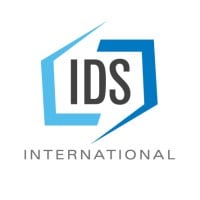Why IDS?
IDS believes in resolving conflict and building innovative approaches to do so. Combining operational expertise with an intimate understanding of today’s greatest challenges to bring our customers the solutions required for success in a complex and multidimensional world. We tailor solutions for a diverse range of government, military, nonprofit, and public-sector clients.
Job Location: OCONUS – Iraq
IDS International is seeking English/Arabic interpreters to support a project in Iraq. Ideal candidates will have near-native fluency in Arabic and be able to work in austere environments, outdoors, and in all weather conditions.
Required Qualifications:
- US Citizen
- High school diploma or equivalent
- 5+ years of years of technical training and interpreting experience in austere/remote environments
- Fluent in spoken and written English and Arabic (Iraqi dialect)
- Professional-level tactical training interpreting and short non-publication translation skills from English to Arabic
- Familiarity with US military terms and acronyms
Desired qualifications
- Experience working in military training / special operations settings
- Professional certifications
- Preference for native-level fluency in Arabic, specifically the Iraqi dialect
Top Skills
What We Do
Hybrid conflict. Non-state actors. Digital hacktivists. Tribal politics. Advanced technology. Ancient beliefs. Rapid adaptation. Strategic uncertainty. Declining resources. Rising extremism.
Today’s national security challenges are complex and multidimensional, requiring adaptive, interagency responses.
For more than a decade, IDS International has delivered innovative training, research and operational civil-military services to help address these 21st century challenges. We are seasoned soldiers, aid workers, diplomats, intelligence professionals, cyber warriors, technical experts, political advisors, and more with a common understanding of how to train for and operate in conflict zones and transitional areas.
Our team of interagency experts and field practitioners operate and train together daily, building on our global multidisciplinary understanding of challenges, best practices and new approaches. This wide range of perspectives permits us to serve as a liaison between civil society, military, government and technology to enhance coordination and effectively solve complex security and political problems.








